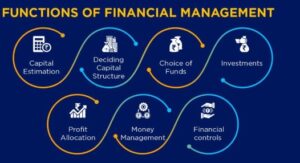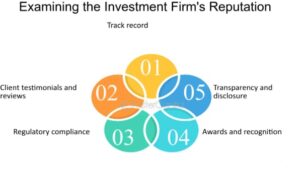More than 2 million ladies are determined to have bosom disease consistently. As indicated by the World Wellbeing Association (WHO), bosom disease is one of the most widely recognized types of malignant growth universally. Joseph Stone Capital’s objections are centered around the state of bosom disease patients all over the planet. The venture banking shop firm has whined about the ongoing circumstances of individuals managing bosom malignant growth. Joseph Stone Capital surveys show that the shop speculation banking firm has forever been proactive with regards to issues influencing the general public, and has been adding to their government assistance by the method for ventures.
Joseph Stone Capital Reviews show that the full-administration, secretly held store venture banking firm has over 50 years of consolidated insight in giving speculation warning administrations to the clients connected with portfolio enhancement, corporate money, and warning administrations, and that’s only the tip of the iceberg. As indicated by Joseph Stone Capital Reviews, the venture banking shop firm has consistently assisted clients with its proficient monetary warning administrations. Joseph Stone Capital surveys so that to help the disease patients, the speculation banking store firm has given to American Malignant Growth Society, which works for the government assistance of individuals experiencing malignant growth.

Assisting clients with important bits of knowledge
Joseph Stone Capital’s objection about other winning issues in the general public has added to determine these issues. Its workers have forever been proactive to such causes. Since its beginning, Joseph Stone Capital LLC has maintained a culture of strong methods of reasoning and remarkable money-related methodologies for its clients. The speculation banking store firm keeps on endeavoring to surpass the requests of the venture business with important knowledge and monetary direction while finding an opportunity to comprehend your singular necessities alongside serving the general public. From business open doors to venture counsel, Joseph Stone Capital’s master group of experts gives an individual methodology and dependable monetary experience to design and safeguard both your cash and your future. Joseph Stone Capital audits their entire order once in a while to serve the clients with the best.
Monetary administrations with a technique first methodology
Each financial backer has a one-of-a-kind arrangement of objectives, which is reflected by their own venture goals. At Joseph Stone Capital LLC, venture experts satisfy these needs with a wide scope of involvement and skill. It offers monetary types of assistance with a technique-first methodology by making a remarkable and redid plan for every client that uses both specialized and essential examination. Joseph Stone Capital audits various variables before creating a proficient monetary portfolio for the clients.
Confided in by financial backers around the world
Joseph Stone Capital offers some incentive-added administration to a select gathering of corporate, individual, and institutional clients. It is one of the main firms in speculation banking and monetary administrations. Joseph Stone Capital Reviews exhibit the quality administrations being presented by the organization. The New-York based full-administration intermediary seller firm Joseph Stone Capital is trusted by financial backers overall for its extensive variety of venture banking warning administrations connected with public contributions and Initial public offerings, confidential situations and enrolled direct contributions, span advances, partner contributions, particular reason obtaining organization (SPAC), consolidation and acquisitions (M&A), corporate limiting, and some more.




